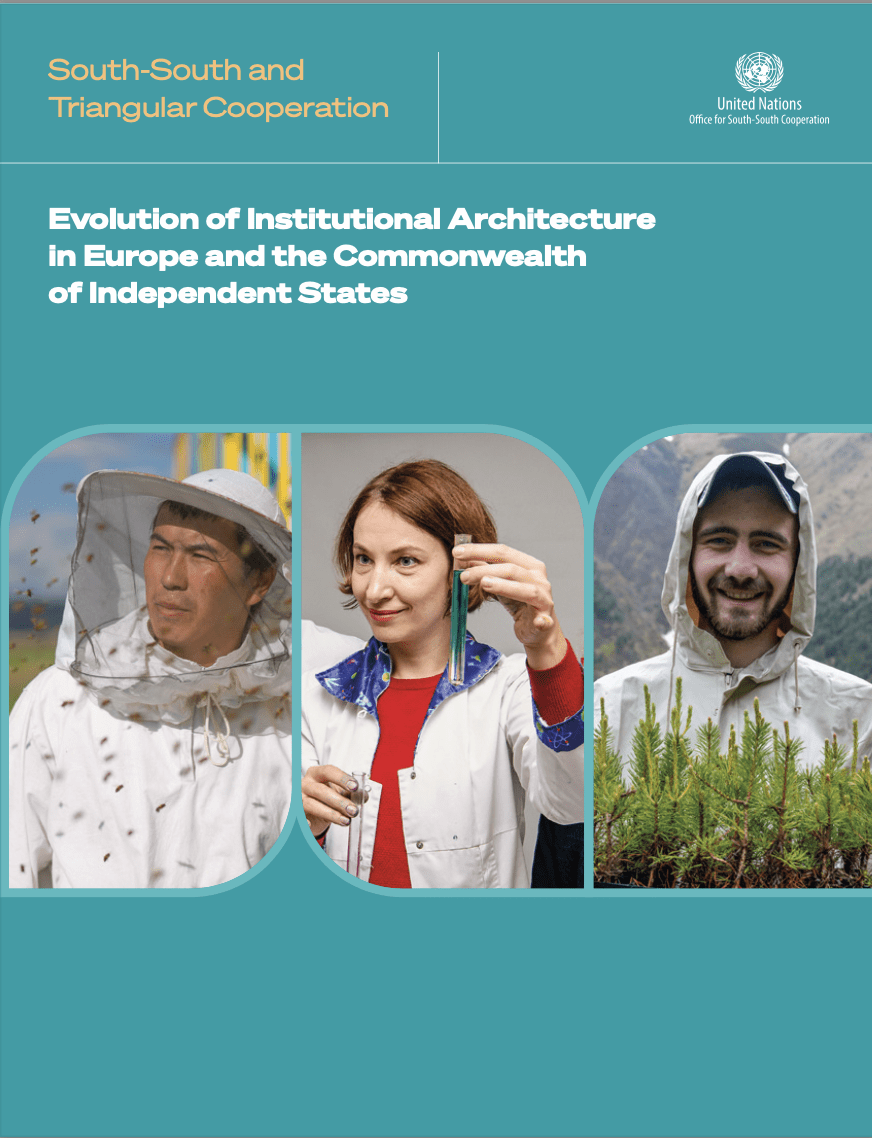The study aims to reflect on some of the developments in the ECIS region related to the ‘incremental institutionalization in South-South cooperation and its incorporation into policymaking by some countries and regions’, as noted in the Outcome Document of the Second High-level United Nations Conference on South-South Cooperation (BAPA+40). More specifically, the study aims to: (i) provide an overview of the recent developments and latest trends in South-South and triangular cooperation in the region and how countries’ national interests intertwine within South-South and triangular cooperation; (ii) explore the institutional diversity in the region and outline the main elements in building institutional foundations; and (iii) provide recommendations in terms of further institutionalization of South-South and triangular cooperation for sustainable development in the ECIS region. The institutionalization process has also witnessed significant progress in other regions, thus providing further lessons learned and experiences to draw from for all future efforts in this area.

Download PDF: Full Report | Summary of Conclusions & Recommendations
The study covers the 17 countries and one territory that are covered by the UNDP Regional Programme for ECIS region. Overall, it emerges that, although limited data do not do justice to the richness of cooperation experiences in the region, the region does present a diversity of institutional architectures, models and practices of South-South and triangular cooperation at the national level. The institutional structures in place are evolving, while new structures are being set up. Elements of South-South and triangular cooperation have been and/or are being incorporated in countries’ strategies and legal frameworks. Commitment at the highest level is also helping to define the strategic goals that each country wishes to pursue through this form of cooperation. Some countries explicitly define South-South and triangular cooperation as part of implementing their foreign policies and strategies or as a diplomacy tool; others emphasize it in the context of development and humanitarian needs of their partner countries.
As the study demonstrates, each country in the ECIS region has a unique national approach: there is no ‘one-size-fits-all’ approach to institutionalization. This form of cooperation also depends on the legal and institutional framework of more than one country. Coherence between the applicable national norms can be a challenge. The situation can be even more complicated when more than two countries’ normative frameworks and/or international rules are applicable. This requires cooperation efforts in legislative and administrative processes for removing possible obstacles and achieving cohesion between partner countries.
